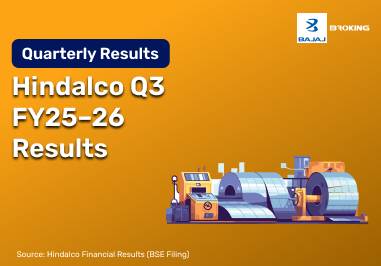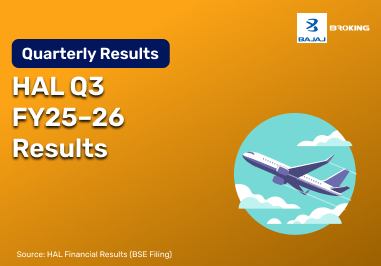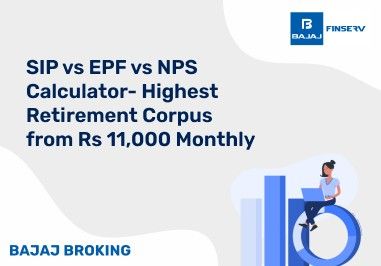Shares represent small portions of ownership in a business. When you purchase an individual share, you own a small piece of that business. In other words, you are entitled to a share of the profits and maybe even a vote in some matters. For companies, offering shares is a way to raise money for expansion or new initiatives. For investors like us, shares can create wealth for us, albeit at some level of risk.
There are two primary types of shares, equity shares and preference shares.
- Equity shares carry the right to vote along with a possible share of profits through dividends. There is no guarantee that a dividend will be paid each year, however.
- Preference shares typically pay a fixed dividend and are prioritised for payment out of profits, but do not carry the right to vote.
The primary means of investment is a Demat Account. This type of account maintains your shares electronically and allows for easy buying and selling on stock exchanges. Share prices fluctuate daily, based on profit performance, market demand, and the economy.
As an example company you might invest in offers (and issues) 100,000 shares for sale, and you buy 1,000. That would give you an ownership stake of 1% of that business. Should the value of that company increase over a period of time, you would also gain investment returns, very simple and really powerful.
Understand the Meaning of Shares and Stocks
There is a small difference between "shares" and "stocks," but most people use them interchangeably.
- Stock is the total amount of capital in a business.
- A "share" is a single piece of that stake.
A business that provides stock splits it up into many shares. These are bought and sold on markets like the Nifty 50 and the BSE Sensex. When you own shares, you have rights, like getting income and making money if the price goes up. But prices can go down too, so it's important to know what's going on.
Key Features of Shares
- Ownership Interest – Shares represent ownership of a company or a portion of the company, which entitles you to a share of the corporation's earnings as an owner of the corporation, which may occur in the form of dividends, stock buybacks, or an increase in the value of the shares.
- Dividends – Some shares may pay a dividend, which is a portion of the company’s earnings.
- Voting Rights – If you own the shares, you can vote on significant matters involving the company or its Board of Directors.
- Capital Appreciation – As the company grows, in general, the value of the shares increases over time, increasing the value of your ownership.
- Liquidity – Shares can be bought or sold on an exchange, so shares trade quickly and have high liquidity.
- Risk and Return – Returns can be high, but the value of the share fluctuates with the market and the companies results and earnings.
- Margin Trading Facility (MTF) – You can borrow money to buy more shares, which increases risks.
Types of Shares and Their Classifications
Shares can be grouped in several ways — mainly by ownership rights, dividend patterns, or how they behave in the market. Think of them as different “flavours” of ownership, each serving a particular kind of investor. Let’s look at the key types you’ll come across:
Common Shares
- What they are: These represent direct ownership in a company.
- What that means: You usually get voting rights, which let you have a say in company matters.
- Dividends: You might receive dividends, though they aren’t promised every year.
- Why they matter: Most everyday investors hold these — it’s the standard way to own a piece of a business.
Preferred Shares
- Nature of ownership: These offer a middle ground between equity and debt.
- Dividends: Holders receive fixed dividends, which come before any payments to common shareholders.
- Rights: Generally, they don’t include voting rights.
- When useful: They’re preferred by those who value steady income more than control.
Treasury Shares
- Definition: These are shares that a company buys back from its own investors.
- Purpose: Firms often do this to reduce the number of shares in circulation or to support share prices.
- Note: They don’t earn dividends and aren’t part of earnings-per-share calculations.
- Perspective: It’s like the company quietly owning a part of itself again.
Voting and Non-Voting Shares
- Difference: Some shares allow shareholders to vote in company meetings; others don’t.
- Reason: This structure helps companies raise money while keeping decision-making within a smaller group.
- Investor tip: If you care about influence, check whether your shares carry voting rights before investing.
Growth and Value Shares
- Growth shares: Linked to companies that aim to expand quickly, often reinvesting profits rather than paying dividends.
- Value shares: Belong to companies that might be temporarily undervalued but have solid fundamentals.
- Investor fit: Growth attracts those seeking potential gains; value suits those looking for stability and long-term strength.
IPO Shares
- Meaning: When a company first lists on the stock exchange, it offers shares to the public through an Initial Public Offering (IPO).
- Opportunity: This gives early investors a chance to own a part of the business before regular market trading starts.
- Caution: IPOs can be exciting, but they also carry uncertainty since the company is new to the market.
Each of these share types serves a unique purpose. Some appeal to investors chasing steady income, while others attract those looking for growth or influence. Knowing which type fits your goals makes investing a little less mysterious — and a lot more personal.
How Share Prices are Determined
Prices for shares never stay the same. Lots of things can make them move, like news about the company, the mood of investors, or events in the economy. This is what usually makes them unhappy:
- Financials of the Company: When profits are high and growth is steady, share prices go up. When profits are low and growth slows down, share prices go down.
- Market Sentiment: Feelings can be more important than numbers sometimes. News or rumours can make investors lose faith in the stock market quickly.
- Trends in the Industry: Most businesses in a field do better when it grows. One example is that IT stocks often go up when demand for digital goods goes up.
- Benchmark measures: Key measures like the BSE Sensex or Nifty 50 make the market move. A lot of shares follow these when they move.
- Big-picture economic factors: The way buyers act is affected by things like inflation and interest rates. Most of the time, markets show that countries are slowing down.
When you understand these, you can understand why share prices go up and down. Each change has a story to tell.
How to Buy and Sell Shares?
It's easier to buy and sell stocks once you know the steps.
To buy:
- Get a Demat account: This is where your shares will be kept online. Add a trading account to it so you can start saving.
- Research Stocks: Before you buy, learn about the company, its prospects, and how it has been doing lately.
- Put in an Order: You can buy at the market price or use a limit order to set the price you want to pay.
To pay for shares, make sure you have enough money in your buying account.
- Keep an eye on your portfolio: See how your stocks do and make changes as needed.
- Choosing to Sell When to Sell: You might sell to make money, stop losing money, or change your business.
- Set a Sell Order: You can pick a market price or a maximum price. You will get paid after the sale. The money will go into your trade account.
- Review Your Strategy: Think about the deals you've already made to help you make better choices in the future.
Long-term buyers look for steady growth over time, while short-term traders may like intraday trading for quick gains.
Why Do Companies Issue Shares?
Organisations issue shares primarily to generate finances for expansion and development. Here are some reasons for issuance:
- Raise Capital for Growth – The issue of shares can help support funding for projects, product launches, or infrastructure.
- Initial Public Offering (IPO) – Going public via an IPO allows private organisations to gain greater access to more investors.
- Market Visibility – Public companies can get more trust and recognition with institutions and the public. Acquisition (takeover) Funding – The issuance of shares can help generate financing for takeovers or partnerships.
- Debt Reduction – Fundraising through shares helps minimise new debt, providing a healthier outlook for the company.
Organisations, by issuing shares, also simultaneously gain valuable funding and even relationships with the investors to support their future growth strategy.
Benefits of Investing in Shares
Investing in shares is an appealing way to make money, and here is why many people want to buy shares:
- Capital Appreciation - If the prices of your shares go up, you can make a profit by selling your shares for a higher price.
- Dividend Income - Some companies return profits to their shareholders in the form of dividends, which is extra income to those shareholders.
- Portfolio Diversification - Holding shares in separate sectors of the market can reduce risk.
- Liquidity - You can buy and sell shares easily at any time.
- Margin Trading Facility (MTF) - MTF is the ability to buy and sell shares with borrowed money, and it is riskier.
- Participation in Growth - When a company is successful, shareholders profit too in the form of elevated prices and dividends. Shares can be a way to open up growth opportunities, but you should always consider your objectives and risks before investing.
Share Price Performance Metrics
Monitoring the way shares behave allows investors to make educated decisions. Performance Indicators of Share Prices
Performance indicators would include:
- Earnings Per Share (EPS): The amount of profit generated by a share on behalf of the shareholder's profits.
- Price-To-Earnings Ratio (P/E): This compares the price of the stock against the earnings to provide an indication of possible valuation.
- Dividend Yield: The amount of dividends received is indicative of the price of a share.
- Beta: The amount a stock moves regarding the broader market.
Business Health
Often, the health of the business can facilitate the movement of the share's price. Look at the debt load, profit margins and quarterly results. When there is steady progress, both individual and institutional investors tend to come together.
Trends in the Industry
Even big, strong companies change with the times. For instance, IT shares may go up when more people use digital tools. But if sales of cars go down, auto stocks might too.
Market behaviour
It is important for investors. Prices can go up or down depending on the news or reviews. Bad news can bring prices down. Markets are affected by things like inflation, GDP growth, and changes in interest rates. Share prices often move quickly when these things change.
Events Unique to Your Company
News about a company, like new products, partnerships, or changes in leadership, can make prices change quickly. A great new product can boost trust, but problems with the law or management can lower it.
Risks Associated with Owning Shares
It's fun and profitable to own shares, but there are also risks. Prices change with the market and how well a company does, and when the market goes down, value can go down too. Shares don't promise returns like fixed-income options do. Awareness of the risks can inform your decisions:
- Market risk: Prices change based on business performance, interest rates, or global events.
- Company-specific risks: Poor management decisions or declining sales may hurt performance.
- Liquidity risk: Some shares trade infrequently; thus, trading them may take longer to execute or sell at a reasonable price.
- Regulatory risk: New rules or taxes can impact share performance.
- Leverage risk in derivatives: Trading Futures or Options involves borrowed funds, which means a greater opportunity to earn or lose money.
If you do have a long-term horizon and dollar-cost average your purchases, you can minimise or reduce some of these risks.
Additional Read: Shares vs Debentures Key Differences Explained














